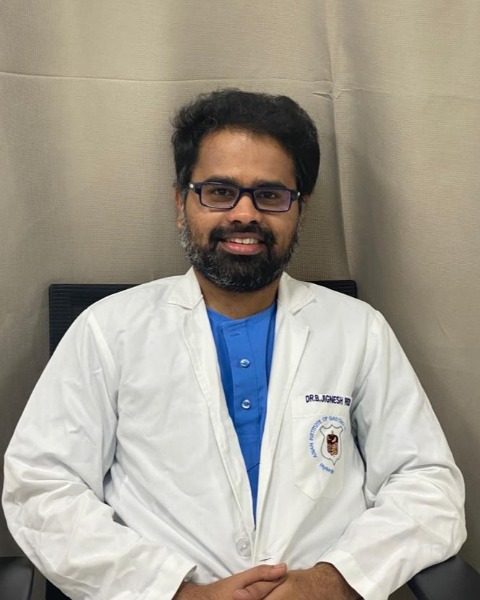Back
Embolization
Session: TIPS and Portal Hypertension
To assess the efficacy of endovascular embolization of portosystemic shunts in management of recurrent hepatic encephalopathy(HE)
Tuesday, March 7, 2023
3:00 PM – 3:09 PM
Location: Phoenix Convention Center, 226ABC

- vs
vivek sreekanth, n/a
Consultant
AIG HOSPITAL - Ak
Anand kulkarni, n/a
CONSULTANT
AIG hospital - MS
Mithun Sharma, n/a
Consultant
AIG HOSPITAL - JR
Jagadeesh R Singh, n/a
Consultant
AIG HOSPITAL - DN
Duvvuru Nageshwar Reddy, n/a
Chairman
AIG HOSPITAL
Presenting Author(s)
Author/Co-author(s)
Disclosure(s):
Jignesh Reddy, MD: No financial relationships to disclose
Purpose: To determine the efficacy of endovascular embolization of spontaneous portosystemic shunts(PSS) in management of recurrent hepatic encephalopathy(HE) in chronic liver disease patients.
Materials and Methods: Retrospective analysis of all patients who underwent endovascular embolisation of PSS for recurrent & persistent HE from august 2020 to august 2022 was done.14 patients were included in the study(13 males & 1 female) with mean age of 57 yrs. Details of Endovascular procedure,complications and clinical outcomes were evaluated.They were followed up symptoms relief & recurrence.
Mean HE episodes were 3.Mean number of significant shunts were 1.5 and mean diameter of shunts was 13mm.
Results: Ten patients had single significant shunts and four had multiple. Embolization was achieved in all with coils in 4 patients, only plug in 1 case, coils and plug in 6,coils and glue in 2 and all three methods in 1 case. Direct percutaneous embolisation was done in a patient. Transhepatic portal access obtained in 2 and common femoral venous access in rest of the patients. Both approaches were needed in 1 case.One patient had associated large gastric fundal varies which were treated prior by balloon assisted sclerotherapy followed by plug deployment. All patients had improvement in symptoms post procedure. Mild abdominal pain noted in 3 patients in whom NBCA glue was used.Small self limiting access site hematoma seen in one patient. No major complication noted post procedure. No symptomatic recurrence seen if shunts >3mm were adequately embolized.
Conclusion: Endovascular embolisation of spontaneous portosystemic shunts is safe and efficient procedure in managing recurrent HE(after excluding other causes). Small shunts < 3mm are clinically insignificant. More than one shunt can be embolized with no major complication.
Materials and Methods: Retrospective analysis of all patients who underwent endovascular embolisation of PSS for recurrent & persistent HE from august 2020 to august 2022 was done.14 patients were included in the study(13 males & 1 female) with mean age of 57 yrs. Details of Endovascular procedure,complications and clinical outcomes were evaluated.They were followed up symptoms relief & recurrence.
Mean HE episodes were 3.Mean number of significant shunts were 1.5 and mean diameter of shunts was 13mm.
Results: Ten patients had single significant shunts and four had multiple. Embolization was achieved in all with coils in 4 patients, only plug in 1 case, coils and plug in 6,coils and glue in 2 and all three methods in 1 case. Direct percutaneous embolisation was done in a patient. Transhepatic portal access obtained in 2 and common femoral venous access in rest of the patients. Both approaches were needed in 1 case.One patient had associated large gastric fundal varies which were treated prior by balloon assisted sclerotherapy followed by plug deployment. All patients had improvement in symptoms post procedure. Mild abdominal pain noted in 3 patients in whom NBCA glue was used.Small self limiting access site hematoma seen in one patient. No major complication noted post procedure. No symptomatic recurrence seen if shunts >3mm were adequately embolized.
Conclusion: Endovascular embolisation of spontaneous portosystemic shunts is safe and efficient procedure in managing recurrent HE(after excluding other causes). Small shunts < 3mm are clinically insignificant. More than one shunt can be embolized with no major complication.

.png)
.png)
.jpg)
.png)
.jpg)
.png)
.jpg)
.png)
.png)